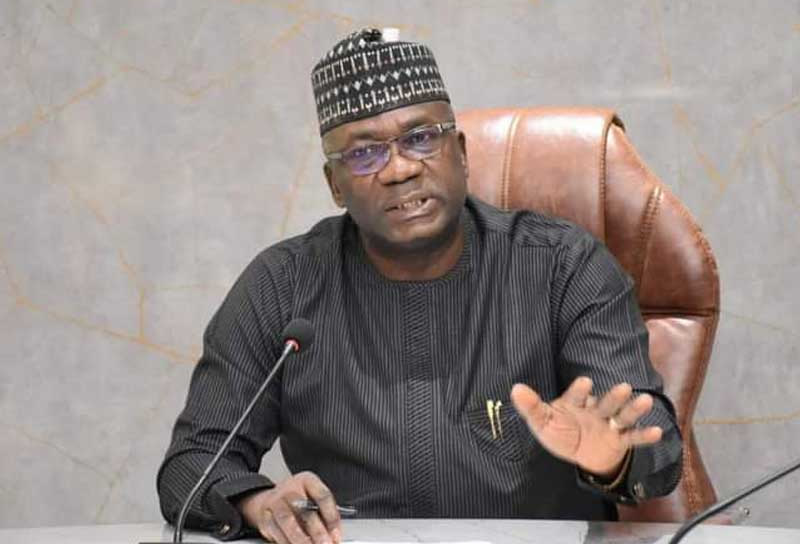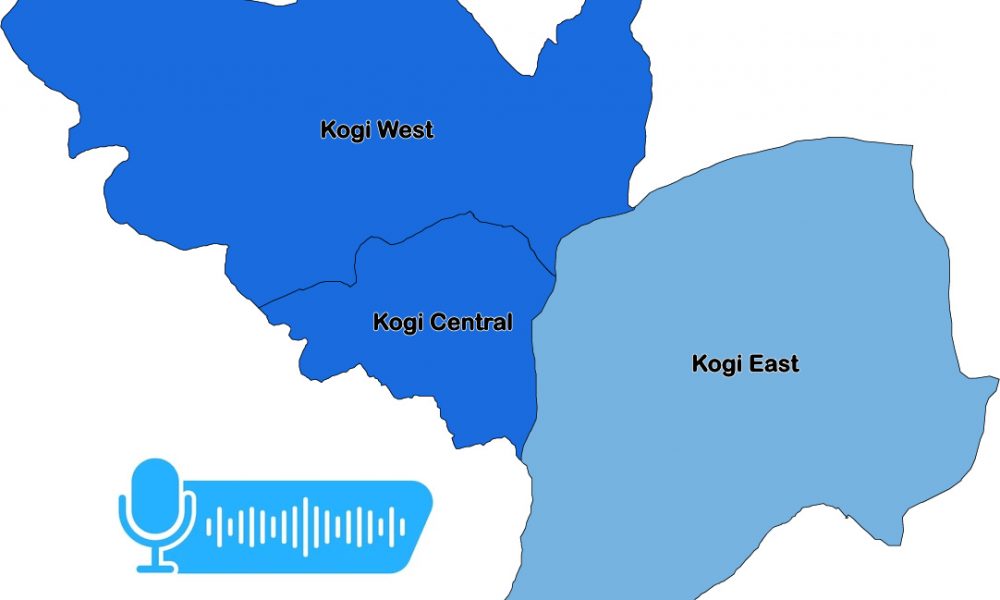Food and Agriculture
FG To Deploy ICT-based Platform to Leverage on Delivering Farm Inputs

For effective delivery of farm inputs, the Federal Government said it had taken steps to leverage the efficient implementation of the rebranded National Agricultural Growth Scheme and Agro-pocket, (NAGs -AP), . adsbygoogle || []).push({});
Mr Ibrahim Arabi, National Programme Coordinator, Agricultural Transformation Agenda Support, said this in an interview with the News Agency of Nigeria (NAN) in Abuja.
He said that the proposed technology would ensure that farm inputs such as fertilizers, seeds, and agrochemicals, among others, got to the farmers across the country.
Arabi said: “We are using an ICT platform delivery system to leverage the system of distribution, we are going to include the farmers and farm inputs in the system to make it an ICT treatment and transparent.”
He said that the recent NAGS meeting was organised to sensitise farmers and fashion out the way forward in the implementation of the scheme.
“This meeting is on the strategy to support farmers with subsidised inputs and also with the institutional capacity for increased productivity,” the coordinator said
On whether the inputs were affordable, Arabi said the Federal Government was giving out about 80 per cent subsidy of the commodity to the farmers.
According to him, the government is using the ICT platform to ensure that farmers have smooth delivery of inputs for the 2023 farming season.
Arabi said that delivery of the inputs would be perfected and the mistakes of 2022 corrected to ensure a seamless delivery of the farm inputs.
Also speaking, Mr Ishaku Buba, Deputy Director, Growth Enhancement Scheme in the Ministry of Agriculture and Rural Development, said that the government was creating a system to evaluate its support to the farmers.
He said: ” We are creating a system whereby we will be able to see the impact of the government on the farmers.
”For instance, I supported you, I met you at this level, and I want to know the impact of what I have supported you with.”
Buba said the distribution of inputs would soon start, adding that the government was targeting the right time of farming activities.
On the cost of inputs such as fertilizers, he said that the cost was dynamic depending on the prevailing market price of the commodity.
“On cost, we look at the prevailing market price and put our subsidy based on that, we cannot fix the price in January and then use it now it is dynamic.
“We have looked at the climatic conditions, we know the procedures to follow for the planting season and we are targeting this period.
“The distribution of inputs will take two to three weeks, but we will start with the seeds. We’ll show the farmers how to apply the seeds very well so that we can get a better result from them,” Buba said.
Mrs Mary Afan, President of the Small-Scale Women Farmers Organisation (SWOFON), said that the women were waiting for the Federal Government to distribute the farm inputs.
According to her, fertilizer which was bought in the market at the rate of N27,000 or N30,000 a bag in 2022, had increased to N35,000 and N38,000 per bag.
She urged the government to consider giving more incentives to the farmers so that they could increase production.
Meanwhile, the Fertiliser Producers, Suppliers Association of Nigeria (FEPSAN) has blamed the current hike in the price of the product on foreign exchange.
Mr Gideon Nagedu, the association’s Executive Secretary, said almost all the blending materials for fertilizer were imported.
Nagedu told the News Agency of Nigeria in Abuja that the current policy on forex had drastically affected the price of the commodity.
According to him, in June, the price of a 50kg bag of fertilizer was as low as N18, 000, adding that at the moment, it had risen to N25, 000 to N26, 000. respectively.
Nagedu said: “Interestingly prices of fertilizer have been fluctuating as a bag of 50kg fertilizer that sold as high as N29,000 last year, just a month ago came as low as N18,000 and in some places N20,000.
“ But, suddenly a change in foreign exchange eventually skyrocketed the price of the product. Most of the blending materials for fertilizer are imported.”
In another development, some farmers in Abuja have decried the high cost of farm inputs, saying this would have a negative impact on food security.
They said only a few farmers have the resources to buy fertilizers and pesticides to apply on their farms.
Mr Adams Dogo, a farmer in Bwari Area Council said the price of a bag of fertilizer was high, contributing to the low crop production yield.
He said: “Most of us local farmers in the rural areas find it very difficult to buy fertilizers and pesticides that we need on the farm, most times we use local means to help boost our farms”.
Mrs Victoria Yohana, also a farmer, appealed to the government to ensure that farmers at all levels got access to farm inputs.
The President of the Potatoes Farmers Association (POFAN), Mr Daniel Okafor, said his members were yet to get fertilizers from the government.
Source: NAN
Author Profile

- Prince Abdulrahman Obaje is a Media, Information and Computer Technology Consultant. A quintessential Journalist, online marketer, social media strategist, Mathematician and Computer Scientist is based in Abuja, Nigeria. He is the Founder and the Publisher of The Informavores!. You can reach me on +234 805 939 5252 or send i-witness report directly to me on news@informavores.com.ng.
Latest entries
 EventApril 20, 2025Easter: Ajia Felicitates Christians, Calls for Prayers, Unity and National Rebirth
EventApril 20, 2025Easter: Ajia Felicitates Christians, Calls for Prayers, Unity and National Rebirth NewsApril 7, 2025What NLM National Leader, ThisDaysMoses Tells Followers On Birthday Anniversary, Full Text
NewsApril 7, 2025What NLM National Leader, ThisDaysMoses Tells Followers On Birthday Anniversary, Full Text ReligiousMarch 30, 2025ICDA Chaiman, Ahmed Usman Felicitates with Igalas On the Occasion of Ide-l- Fitri
ReligiousMarch 30, 2025ICDA Chaiman, Ahmed Usman Felicitates with Igalas On the Occasion of Ide-l- Fitri NewsMarch 28, 2025Upscaling Organic, Agroecology practices key to healthy living – Experts
NewsMarch 28, 2025Upscaling Organic, Agroecology practices key to healthy living – Experts
Food and Agriculture
Neglecting Livestock Farming In The Past Was a Mistake That Should Not Be Repeated – President Tinubu

The Federal Government has said neglecting livestock farming in the past was a mistake that should not be repeated if we must food-secured and attain national security.
This is contained in a statement signed by Bayo Onanuga, Special Adviser to the President, Information & Strategy.
adsbygoogle || []).push({});
googlesyndication.com/pagead/js/adsbygoogle.js">
The statement read, ‘ President Bola Tinubu, speaking in Abuja, reassured the public that past mistakes, such as neglecting livestock farming and relying on dairy imports, will be avoided. He pledged a robust framework to stimulate prosperity in the sector, instilling confidence in his commitment.
The President, who opened a two-day Consultative Workshop on Livestock Reforms on Thursday October 24thm 2024 at the State House Conference Centre, pledged government support in revamping and repositioning the sector to create employment and attract foreign Direct Investment (FDI).
“The livestock sector is critical, and we will give all it needs to bring value to our country. Stakeholders, I assure you that you will not regret the collaboration and investment in this sector.
“It is about time that we do it right. A country of over 200 million people and cannot serve our children one pint of milk in a classroom per day? That is not right.
“We didn’t see the investment opportunities. We didn’t see the economy of livestock in the past. Now that we have seen it, we must work together to restart the sector,’’ he said.
President Tinubu commended the Presidential Livestock Reform Implementation Committee, led by the Co-Chairman, Prof. Attahiru Jega, and the Secretary, Prof Muhammed Yahaya Kuta, for their commitment to repositioning the livestock sector.
“Our shared mission is clear: we aim to transform the livestock sector from its current subsistence model into a thriving, commercialised industry, an industry that significantly contributes to Nigeria’s Gross Domestic Product and provides decent jobs and sustainable livelihoods for our growing population.
“The potential is immense: With 563 million chickens, 58 million cattle, 124 million goats, 60 million sheep, and 16 million pigs, Nigeria is the leading livestock producer in West Africa. Yet, despite this vast resource, we face stark realities.
“Our annual production of animal-source foods, like milk at 0.7 billion litres, meat at 1.48 million Tonnes and eggs at 0.69 million metric Tonnes, falls far short of our needs. Our per capita consumption levels—8.7 litres of milk, 9 kg of meat, 3.5kg or 45 eggs per year—are troublingly low compared to global averages. These are 44 litres of milk, 19 kg of meat and between 160 and 180 eggs per year.
“What is more worrisome to me is the average milk yield by cow breeds managed by our pastoralists: it is a mere 0.5 to 1.5 litres per day, compared to a global average of 6.6 litres per day. We can do much better!
“The long-term neglect of the livestock sector has weighed heavily on the country’s import bills, with milk and dairy products accounting for $1.2-1.5 billion.
“Yes, we can do it. We can bring prosperity to our people. We can feed our children. From grass, we can achieve grace. We can contribute so much to the Gross Domestic Product (GDP) and provide decent jobs,’’ the President noted.
President Tinubu also thanked the Nigerian Governors Forum, NGF, chaired by the Governor of Kwara State, Abdurrahman Abdulrazaq, for supporting the reform of animal farming in the country.
“Your Excellency, Chairman of the NGF, Abdulrazaq, thank you for assuring C-of-Os and other instruments from other areas. I also know that the Etsu Nupe, Alhaji Yahaya Abubakar, with the vast land in his domain in Niger State, will accommodate many investors.
“We didn’t see the cold room investment. We didn’t see that opportunity before now. But it is coming. We are going to give it all it takes.
“The opportunity is there; when I inaugurated the Presidential Livestock Reform Committee, I didn’t see the path clearly until they started working. Thank you, Prof Attahiru Jega,’’ the President stated.
President Tinubu also acknowledged Abdullahi Ganduje, Chairman of the All Progressives Congress (APC), for nurturing the idea of reforming the livestock stock, Nuhu Ribadu, national security Adviser, and Nyesom Wike, FCT minister, for their commitment to realising the dream.
“We can create a vivid picture of the future we want to see; it’s the future of our country. The economic opportunities for our children, and with that effort, we can say God bless Nigeria,’’ he stated.
The Chairman of NGF, Abdulrahman Abdulrazak, assured of the “100 per cent buy-in of the sub-national to make the reform a success because it is not just food security, but national security.’’
Abdulrazaq thanked President Tinubu for leading the initiative by chairing the implementation committee, regretting that past efforts in the same direction were reduced to files in the Ministries of Agriculture in states and local councils due to lack of political will.
He said each state should create a segment for livestock farming and extend the value chain to meat and dairy production.
The Minister of Agriculture and Food Security, Sen. Abubakar Kyari, thanked the President for his “bold action, exemplary leadership and unparalleled commitment to livestock reform.’’
Kyari assured of working with the Ministry of Livestock Development to realise the president’s vision to diversify the economy and empower more Nigerians.’
Author Profile

- Prince Abdulrahman Obaje is a Media, Information and Computer Technology Consultant. A quintessential Journalist, online marketer, social media strategist, Mathematician and Computer Scientist is based in Abuja, Nigeria. He is the Founder and the Publisher of The Informavores!. You can reach me on +234 805 939 5252 or send i-witness report directly to me on news@informavores.com.ng.
Latest entries
 EventApril 20, 2025Easter: Ajia Felicitates Christians, Calls for Prayers, Unity and National Rebirth
EventApril 20, 2025Easter: Ajia Felicitates Christians, Calls for Prayers, Unity and National Rebirth NewsApril 7, 2025What NLM National Leader, ThisDaysMoses Tells Followers On Birthday Anniversary, Full Text
NewsApril 7, 2025What NLM National Leader, ThisDaysMoses Tells Followers On Birthday Anniversary, Full Text ReligiousMarch 30, 2025ICDA Chaiman, Ahmed Usman Felicitates with Igalas On the Occasion of Ide-l- Fitri
ReligiousMarch 30, 2025ICDA Chaiman, Ahmed Usman Felicitates with Igalas On the Occasion of Ide-l- Fitri NewsMarch 28, 2025Upscaling Organic, Agroecology practices key to healthy living – Experts
NewsMarch 28, 2025Upscaling Organic, Agroecology practices key to healthy living – Experts
Food and Agriculture
Gov Ododo Flags Off 19.55km Obajana-Uro-Aku Rural Road Project

By Abdulrahman Obaje
Kogi state Governor Ahmed Usman Ododo flags off construction of the 19.55km Obajana-Uro-Aku rural farm road, marking a significant milestone in Kogi State’s quest for enhanced rural infrastructure and agricultural growth.
adsbygoogle || []).push({});
js">
Governor Ododo while performing the ceremony today October 15th, 2024 at Obajana Uro Junction, eulogies President Bola Ahmed Tinubu for his support to the people of Kogi State
According to him, the construction of the road would alleviate the suffering of the farmers in Kogi state.
In his words, “It is indeed with all sense of fulfillment that I stand here today to officially Flag Off the construction of about 19.55 Obajana —Uro—Aku road under Rural Access and Agricultural Marketing project called RAAMP,” he said.
He further noted that his Government is out to employ all legitimate means to improve the lives of the people of Kogi State.
The flagship project, undertaken by the Kogi State Rural Access and Agricultural Marketing Project (Kogi-RAAMP) and the State Ministry of Rural and Energy Development, demonstrates Governor Ododo’s unwavering commitment to rural-focused governance.
The Obajana-Uro-Aku rural road project is expected to bring numerous benefits to the state, including increased accessibility and easier movement of people, goods, and services between rural communities and urban centers.
It will also boost Economic Opportunities, improve market access for rural producers, and stimulate economic growth and development in the axis.
Governor Ododo’s administration has consistently prioritized rural development, recognizing its pivotal role in shaping the state’s economic future.
This project is proof of his dedication to providing infrastructure that benefits all citizens, regardless of geographical location.
The state, in collaboration with the Rural Access and Agricultural Marketing Project (RAAMP), a World Bank supportive program, is expected to yield sustainable results that will alleviate the people of Kogi State on many fronts.
The Kogi State Commissioner for Rural and Energy Development, Hon. Engr Mohammed Abdulmutalib, while speaking, appreciated Gov. Ahmed Usman Ododo for his commitment to the welfare of the people of the State.
According to him, the project would open up access to market, healthcare, and education for thousands of residents, which would enable them to engage more fully in the State’s economic activities. Adding that the state is set to Flag Off five more rural roads collectively spanning 65.25 Km across the state.
With Governor Ododo at the helm, Kogi State is poised for transformative growth, and this project is just the beginning of more unprecedented achievement.
Author Profile

- Prince Abdulrahman Obaje is a Media, Information and Computer Technology Consultant. A quintessential Journalist, online marketer, social media strategist, Mathematician and Computer Scientist is based in Abuja, Nigeria. He is the Founder and the Publisher of The Informavores!. You can reach me on +234 805 939 5252 or send i-witness report directly to me on news@informavores.com.ng.
Latest entries
 EventApril 20, 2025Easter: Ajia Felicitates Christians, Calls for Prayers, Unity and National Rebirth
EventApril 20, 2025Easter: Ajia Felicitates Christians, Calls for Prayers, Unity and National Rebirth NewsApril 7, 2025What NLM National Leader, ThisDaysMoses Tells Followers On Birthday Anniversary, Full Text
NewsApril 7, 2025What NLM National Leader, ThisDaysMoses Tells Followers On Birthday Anniversary, Full Text ReligiousMarch 30, 2025ICDA Chaiman, Ahmed Usman Felicitates with Igalas On the Occasion of Ide-l- Fitri
ReligiousMarch 30, 2025ICDA Chaiman, Ahmed Usman Felicitates with Igalas On the Occasion of Ide-l- Fitri NewsMarch 28, 2025Upscaling Organic, Agroecology practices key to healthy living – Experts
NewsMarch 28, 2025Upscaling Organic, Agroecology practices key to healthy living – Experts
Food and Agriculture
Food Security: FG Started The Distribution of Subsidised Farm Inputs to Small Holder Farmers

In order to tame the tide of sky-rocketing food prices, the Federal Government says i has started the distribution of subsidised farm inputs to small holder farmers across the North Western States of the country. adsbygoogle || []).push({});
This is contained in a statement signed by Mrs Mabel Obe, Principal Information Officer, Federal Ministry of Agriculture and Rural Development on Tuesday 1st August, 2023 in Abuja.
She said the distribution was carried out by the ministry through the National Agricultural Growth Scheme and Agropocket (NAGS-AP).
Obe said the initiative would boost food and nutrition security, attract private sector investment, reduce post-harvest losses, as well as add value to local agriculture produce.
She said that Gov. Abba Yusuf of Kano State who spoke at the event in Bunkure Local Government Area, Kano, said that the scheme was being implemented through the Agricultural Transformation Agenda Support Programme Phase One (ATASP-1) of the Federal Government.
He said ATASP-1 was funded by African Development Bank as a Pilot phase to pave way for successful implementation of the forthcoming Policy Based Operation.
”The Policy Based Operation (PBO) was a Sector Budget Support (SBS) operation prepared under the African Emergency Food Production Facility (AEFPF).
“It is funded through a loan from the African Development Bank (AfDB) to be Implemented across the 36 states of the Federation and FCT for a period of two years beginning from 2023,“`he said.
The governor who was represented by his Deputy, Mr Aminu Abdussalem, said that the objective of NAGS-AP was synonymous with the objectives of ATASP-1.
Yusuf said that the benefiting communitiesincluded, Bunkere Rano, Bagwai, Dawakin Kudu, Bebeji and Garun Malam Local Government Areas of the State.
In an address, the Permanent Secretary of the Ministry, Dr Ernest Umakhihe, said that the event would boost agricultural production and guarantee access to quality agricultural inputs.
Umakhihe was represented by the Director, Projects Coordination Unit Department (PCU), Mr Bukar Musa.
He said that the programme was targeted at supporting 60,000 farmers in the five ATASP-1 5 States with highly subsidized inputs to help increase their production level.
”The programme is targeted at supporting 60,000 farmers in the five ATASP-1 5 States with highly subsidized inputs to help increase their production level and achieve economic well-being.
“Government is committed to paying 80 per cent of the total cost of the input package, while each participating farmer is expected to pay the 20 per cent balance for the redemption of his/her inputs at the Redemption Centre.
“The Government this year approved the introduction and use of ICT platform for delivery of the inputs to farmers, making this year’s program a very notable one,” he said.
The National Programme Coordinator, ATAPS 1, Dr Ibrahim Arabi, said that the Global challenges of Covid-19, insecurity as well as food insecurity had informed the Government to restructure ATASP-1.
He said NAGS-AP would be implemented in five states namely Niger , Kano State, Jigawa , Sokoto State as well as Kebbi, adding that the crops being promoted included Rice, Sorghum, and Maize.
NAN
Author Profile
Latest entries
 NewsOctober 30, 2024Naija Youth Rebirth Congratulates Abdulrahman Obaje on Inauguration, Says Position Well Deserved
NewsOctober 30, 2024Naija Youth Rebirth Congratulates Abdulrahman Obaje on Inauguration, Says Position Well Deserved NewsOctober 8, 2024Report Claims Guaranty Trust Bank Involved In Financial Foul Play, Unsolicited Accounts Opening, Forex Manipulations, Others
NewsOctober 8, 2024Report Claims Guaranty Trust Bank Involved In Financial Foul Play, Unsolicited Accounts Opening, Forex Manipulations, Others NewsApril 18, 2024Alleged N80.2billion Money Laundering: EFCC Declares Immediate Kogi Ex-Governor Yahaya Bello Wanted
NewsApril 18, 2024Alleged N80.2billion Money Laundering: EFCC Declares Immediate Kogi Ex-Governor Yahaya Bello Wanted NewsNovember 6, 2023Another Massive Plan By APC To Rig Kogi Election Uncovered!
NewsNovember 6, 2023Another Massive Plan By APC To Rig Kogi Election Uncovered!








 Arabic
Arabic Chinese (Simplified)
Chinese (Simplified) Dutch
Dutch English
English Filipino
Filipino French
French German
German Hausa
Hausa Igbo
Igbo Italian
Italian Latin
Latin Portuguese
Portuguese Russian
Russian Spanish
Spanish Swedish
Swedish Turkish
Turkish Yoruba
Yoruba Zulu
Zulu